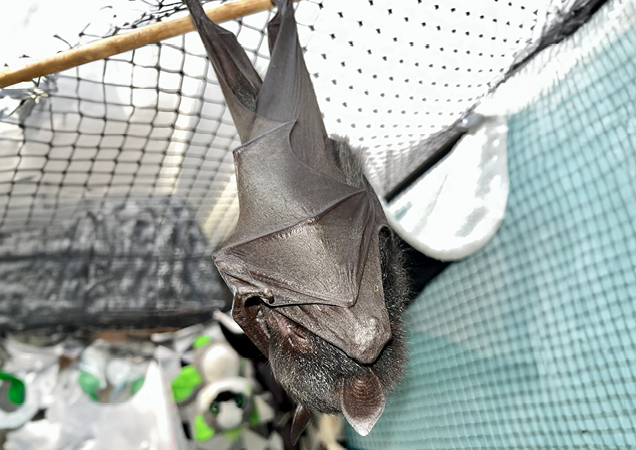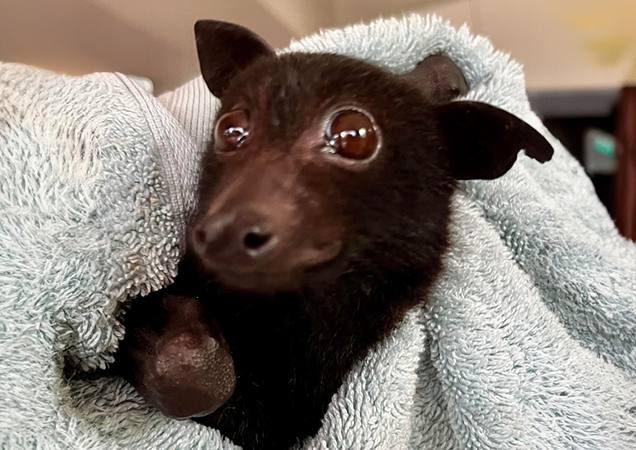A pint-sized flying fox affectionately named Mango was found roosting at a day care centre in Brisbane recently after she was sadly orphaned by her mother.
After being examined by trained veterinary staff at our RSPCA Wildlife Hospital, it was determined Mango the flying fox was a first-time flyer that had become tired and chose to roost on the playground fence at the centre.
Fortunately, there were no signs of injury and all Mango required was a feed and some fluids before she was okay to be moved to an experienced Bat Conservation & Rescue Qld carer named Anya. Anya said Mango was doing well and had joined a flight aviary with other flying foxes before they’re ready for release.
Within a few days of Mango being brought into RSPCA for treatment, another flying fox named Lochie was admitted into RSPCA care. Sweet Lochie required surgery on a wing injury and was placed with an experienced wildlife carer to begin his recovery.
The ecological role which flying foxes play is an important one, as they disperse the fruit and pollen of many native trees. Flying foxes can travel up to 100km in one night, unfortunately they are a threatened species and in decline in many areas because of long-term habitat destruction. We must learn to live alongside these precious pollinators and protect the habitats of flying foxes.





